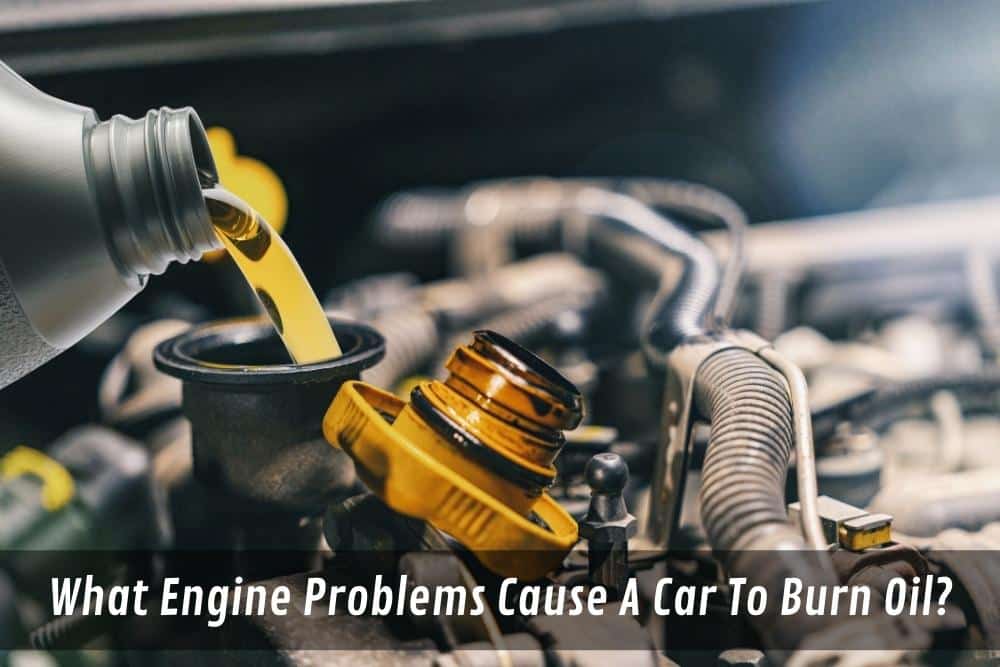Car engine oil is crucial for smooth and efficient engine operation. However, an excessive amount of smoke from the exhaust, engine misfires, reduced performance, or the smell of burning oil could be symptoms of a bad engine caused by burning car engine oil.
This blog will discuss engine problems that cause oil burning and how to identify them to prevent further damage and costly repairs. If you’re experiencing these symptoms, read on to learn more about their causes and how to address them.
What are the indicators of burning oil within a car’s engine?
- The most common indicators of burning oil within a car’s engine are an excessive amount of smoke coming out of the exhaust pipe, an acrid smell coming from the engine bay, and a decrease in oil levels. Additionally, you may also notice a decrease in your car’s performance or increased fuel consumption.
- It is also possible to detect when oil is entering the combustion chamber as this often leads to misfiring or knocking noises from the engine. Additionally, if you check the dipstick on your car’s diesel engine and find that it has become blackened with sooty deposits, then it is likely that oil is entering the combustion chamber.
In addition to these common indicators, a malfunctioning cylinder head gasket can cause overheating, white smoke from the exhaust and coolant loss. Car owners who suspect issues with the cylinder head gasket or burning oil should consult the owner’s manual for recommended actions. It is crucial to have a qualified mechanic examine the engine promptly to prevent further damage or costly repairs. Regular engine maintenance can prevent these problems and extend the vehicle’s life.
What are some common causes of car engine oil consumption?
- One of the most common causes of excessive oil consumption is worn-out piston rings. Over time, the piston rings in a car’s engine may experience wear or damage, resulting in the infiltration of oil into the combustion chamber. This can cause smoke to come out of your exhaust pipe and lower your oil level over time.
- Another issue that can cause a car to burn oil is a faulty valve cover gasket. This part seals in the engine’s oil, but if it becomes cracked or leaks, then oil will escape and enter the combustion chamber as well.
- It’s also possible for a car to burn oil if its owner isn’t following their manufacturer’s recommended service schedule — specifically when it comes to changing the motor oil. Depending on the type of vehicle, some cars may require fully synthetic oils while others may call for semi-synthetic or mineral oils. Using the wrong type of oil can cause it to break down quickly and enter the combustion chamber. In addition, oil leaking from a dirty air filter or a clogged PCV valve can also lead to excessive burning.
- Finally, another common cause of an engine burning oil is faulty or worn-out valve guides and/or cylinder walls. As a result of long-term usage, the mechanical components are subject to wear and tear, which can lead to oil leakage and entry into the combustion chamber. If you suspect any of these issues are causing your car to burn oil, it’s best to take it in for a professional inspection so the problem can be properly diagnosed and repaired.
What are some preventative measures that can be taken to avoid the burning of engine fuel?
There are several preventative measures that can be taken to avoid the burning of car engine oil.
- First, it’s important to stay up-to-date with your vehicle’s service schedule, including regular oil and filter changes, as this will help extend the life of your engine. Additionally, consider investing in higher quality motor oils such as fully synthetic or semi-synthetic varieties; these can help reduce wear and tear on your engine, as well as reduce the chances of oil entering the combustion chamber.
- It is also essential to make sure that your crankcase ventilation system (PCV valve) is functioning properly in order to regulate airflow and prevent oil from entering the combustion chamber. In addition, the cylinder head gasket, piston rings, and valve guides should all be inspected regularly to ensure they function properly.
- Finally, if you notice any of the signs of excessive oil consumption, such as smoke or knocking noises coming from the engine, make sure to have your vehicle checked by a certified mechanic. By following these steps, you can ensure your car runs efficiently and is free of oil leakage.
Conclusion
Overall, there are various engine problems that can cause a car to burn oil. Common causes include worn piston rings, damaged valve stem seals, a faulty PCV valve, cylinder wall damage, turbocharger problems, and head gasket failure. To prevent excessive oil consumption, be sure to follow your manufacturer’s recommended service schedule and use higher-quality motor oils. Additionally, ensure the PCV valve is functioning properly and consider investing in synthetic oils to reduce engine wear. With the right preventative measures, you can keep your car running smoothly and free of excessive oil consumption.
If you’re having a problem with your car engine, Contact Hyundai Iload Engine Specialist today! Our experienced technicians are here to help diagnose and fix Hyundai engine failure and burning oil. We have the latest equipment and technologies to get your car back on the road quickly and safely.

